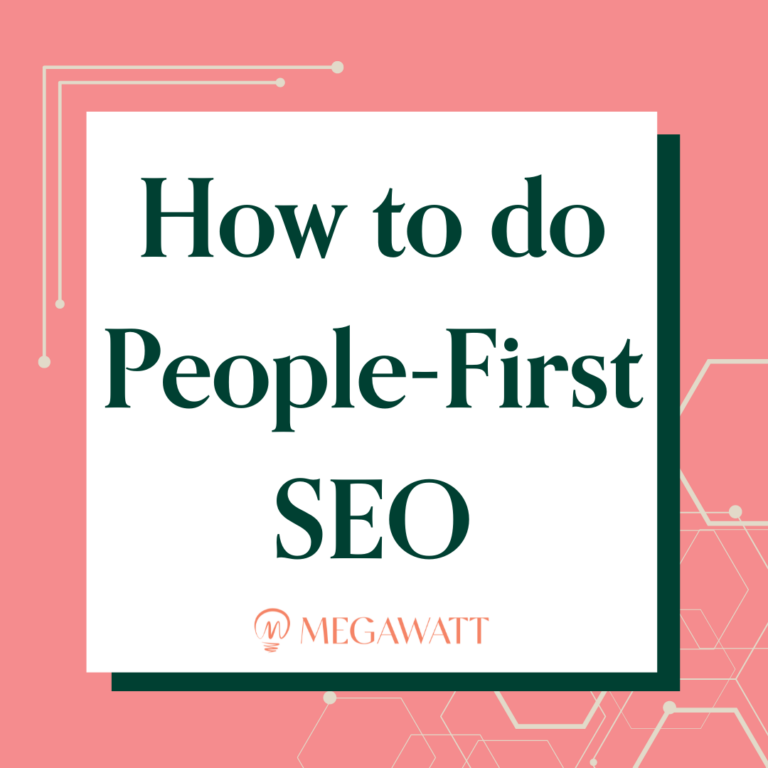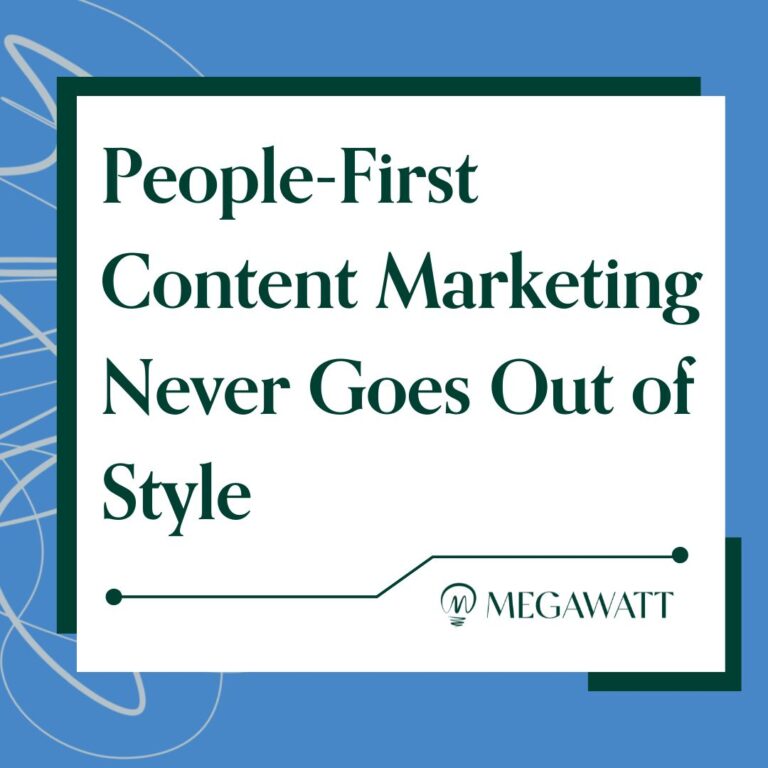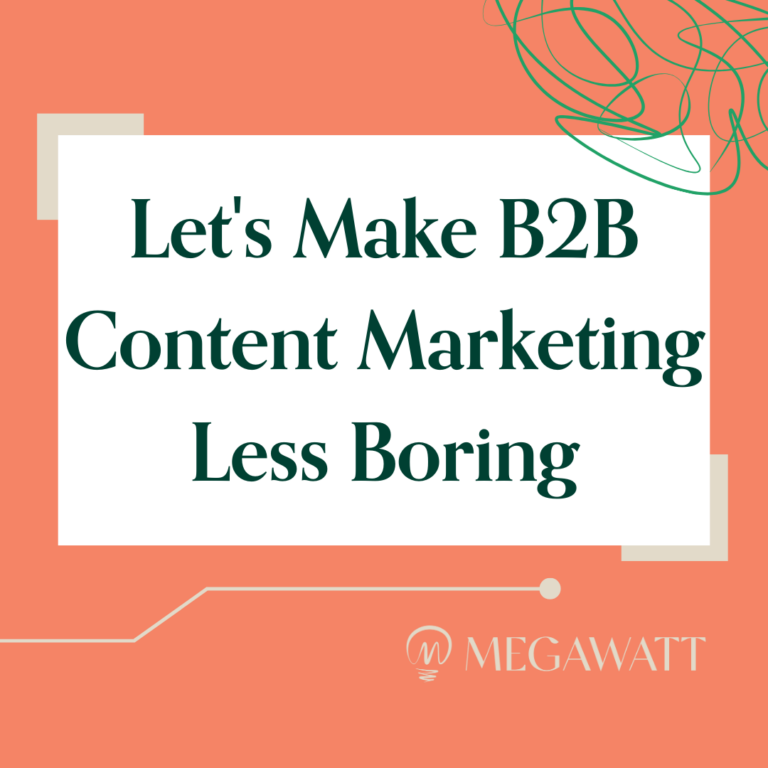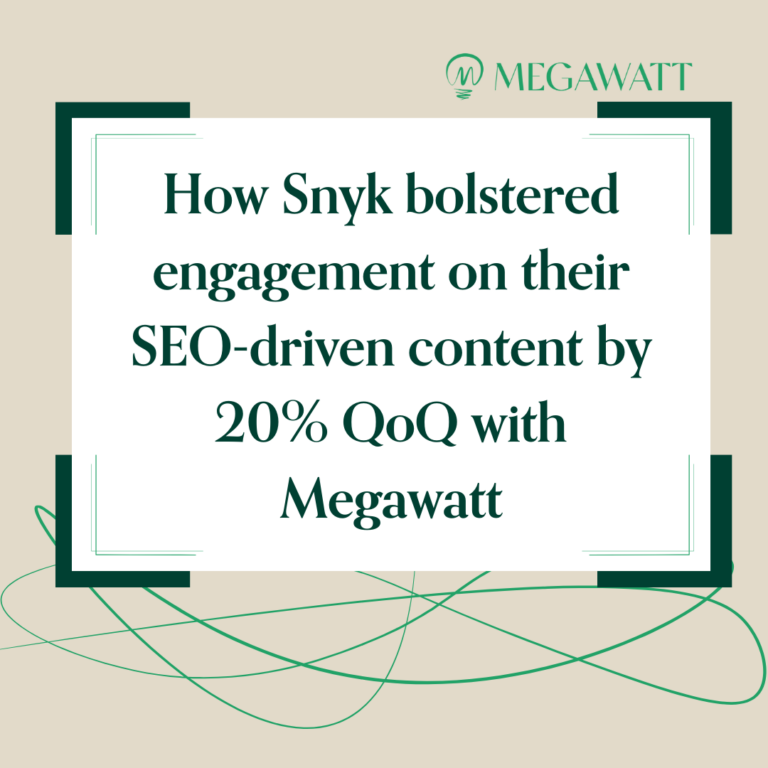Understanding SEO Entities and the Anatomy of Search
Over the past decade, SEO entities have quietly become one of the most important concepts in search and content marketing. They are among us all the time, whether we know it or not. These entities are even with us right now.
While channeling the power of entities may sound esoteric or extraterrestrial, it is actually quite practical and tangible. Below you will discover how Google views entities, why we can’t ignore the shift toward entity-based search, and useful tips for incorporating SEO entities into your content marketing strategy.
What is an entity?
Google defines an entity as “a thing or concept that is singular, unique, well-defined and distinguishable.” They also note that entities are typically associated with nouns: people, places, items, ideas, concepts, groups, etc.
We can examine Google’s Natural Language API demo to peek behind the curtain at how they approach parsing text for entities. To take it for a test drive, replace the placeholder under “Try the API” with your own sentence, paragraph, or article and click “Analyze.”
![]()
In our example above, you can see the API applied natural language understanding (NLU) to identify six distinct entities. It also attempted to group each entity under one of several predefined categories (with Megawatt Content classified as a work of art, we’ll take it). When using the demo, take note of the words listed as entities but don’t attach too much importance to their broad-stroke categorization.
Each entity is also assigned a “salience” score, between zero and one, based on its perceived importance within the larger text. In theory, highly salient entities are more likely to stand out to a human reader as things or concepts that are central to what they are reading. In the above example, “agency” is considered the most salient entity. This checks out; if someone unfamiliar with Megawatt reads the sentence, they would understand it is a description of an agency.
Google’s shift toward entity-based search
The exercise above reflects that, over the past decade, Google has increasingly embraced an entity-based approach to website indexing and search results. Why? Because entities make things easier for both the search engine and its users.
As noted by Dixon Jones, a veteran search marketer who literally wrote the book on SEO entities, “There are much [fewer] topics and ideas in the world, it turns out, than there are pages on the Internet.” The Internet comprises millions of entities across trillions of URLs. An entity-based approach helps the search engine increase efficiency and “go much deeper with a lot less repetition” because it has evolved to view information holistically rather than trying to understand each page in a vacuum.
![]()
Example of a knowledge graph [Source]
This evolution is part of Google’s journey to become a semantic search engine that actually understands the meaning of content and relationships among entities (see: the Google Knowledge Graph) to serve better search results. It’s why searching for “apple picking products” brings back tools you can use to harvest Granny Smiths, while searching for “picking apple products” surfaces shopping pages for iPhones and Macbooks.
For many queries, you and I will receive different results because of our unique search context, which can include factors such as location, device type, and past digital activity. A search for “pick apples now” yields recommendations for orchards near my city. An additional search for “apple picking season” produces a featured snippet letting me know the best time to pick apples in my area is August through November.
Search result pages now include entity-based knowledge panels, “people also ask” questions, featured snippets, and many other SERP features that are designed to deliver the information people are looking for as fast as possible. This shift has led some to declare that Google has become an “answer engine.” Their recent foray into AI chatbots (alongside rival Bing) indicates that the search giant will continue to move in this direction.
Sign up for Dear Wattson, our weekly newsletter, where all content conundrums are answered!
What do entities mean for content marketing?
Rest assured that SEO entities will not radically alter your content marketing program or negate the work you have already done. After all, they have been factored into search for years now, so you only stand to gain momentum by refining your content strategy with an entity-first mindset.
Let’s provide some greater clarity on the difference between entities and keywords, as well as the positive influence that entities can have on your content strategy and execution.
Entities vs. keywords
In the minds of many content marketers, SEO success relies heavily on a well-known tangible: keywords. The prevailing idea is that you should create a content library based on the right formula of keywords, add in a dash of link building to (hopefully) build authority, and watch your organic traffic soar.
Keywords are still an undeniably important part of SEO. However, Google’s shift toward entity-based search means we no longer have to be extremely prescriptive (robotic, boring, however you choose to describe it) when writing content aligned with search as a main distribution channel.
Cindy Krum describes this distinction elegantly in her in-depth technical breakdown of entity-first indexing: “[W]hen SEO and search [are] all about keywords, it is a language-specific task. Entities are different because they are universal concepts that keywords in any language can only describe…The algorithm can cut through the noise and nuance of language, spelling and keywords, and use entities and context to surface the appropriate type of response for the specific query.”
![]()
Thanks to Google’s understanding of entities, if you write thoughtfully and thoroughly about a topic you can rank for gobs of keywords that aren’t explicitly used. For example, this Zoom blog from my colleague Lucia Giles currently ranks for hundreds of keywords, many of which are not actually in the text but are directly related to the core topic: how to host a webinar on Zoom.
Entities’ influence on content strategy and creation
The conversation about SEO entities for content marketing can range from dense and technical to abstract and theoretical. Rather than overwhelm in an introductory article, let’s cover some practical tips you can use to factor entities into your content strategy and execution.
Content strategy
At a high level, you want your website to rank for relevant search topics that are related to your products or services. To achieve this goal, you need to create content that discusses and connects entities related to each topic in a logical way.
![]()
Example of a topical map [Source]
One way to create a plan for building up your topical authority is by creating a map for each topic you would like to own. A topical map is just a central place to document all of the key entities, subtopics, and queries that are related to a single parent topic. It could take the form of a spreadsheet, visual chart, or project management board.
Here are some quick tips you can use to populate a topical map:
- Enter your topic on Google Trends and take note of related topics and related queries.
- Pull data from Google autocomplete and People Also Ask suggestions.
- Analyze other websites in your niche to see which entities they are associated with.
- Crawl competitors’ sitemaps to understand their content structure and topical coverage.
- For the technical crowd, use the Knowledge Graph Search API to pull entity data.
- Determine if related subtopics should be covered in one piece of content or several.
Much has been written about topic clusters (aka hub and spoke) so we won’t rehash best practices for designing a user- and search-friendly website structure based on your topical map. If you’re not familiar with these concepts, here is a comprehensive guide from Semrush that walks through the essentials.
Internal linking plays a vital role in connecting entities and topics across your website. Per Dixon Jones, “As SEOs, I think the future is that we need to think of our websites as a knowledge base, as an entity database. You’ve got to think of your website as an entity database and connect things appropriately.”
Content creation
Entities also shape the information that we cover within an individual piece of content. For the majority of established topics (not brand new or extremely obscure), Google expects content to contain related entities that prove 1) the writer knows what they’re talking about and 2) the answer will satisfy the searcher’s intent.
If you wanted to write a comprehensive piece on “healthcare cybersecurity compliance,” the search engine would expect you to discuss entities such as HIPAA, personally identifiable information, and internal risk management, among others. Content that doesn’t cover these essential topics would likely be viewed as incomplete by search engines and humans alike.
Content optimization tools often have some type of “topic score” that grades your content based on whether or not it includes the entities found in top ranking content. This is helpful to a degree, however these tools can be a tad overprescriptive (e.g., “include the keyword ‘target audience’ 12 times in this blog”). Using a free tool to scan the headings of competing content is a quick alternative for finding essential topics you can use to guide your research.
However, if you take cues exclusively from page one you will end up with content that is dull and unoriginal.
Here are some tips for creating content that ranks well and is compelling for readers:
- Find a unique point of view that your brand can hold when writing about essential entities. Infuse subject matter expertise, use original data, or take a contrarian stance.
- Write with someone in mind. Who is this person? What are their pain points? What do they already know? How can you meet and exceed their expectations?
- Maintain a driving narrative with a central thesis that connects the dots among entities around your core topic. Avoid siloed, encyclopedia-style sections.
- Identify relevant entities that are missing from top-ranking content. There are some brilliant workflows for free AI tools that can help you do this.
- Go deep in your research. Use advanced search operators, lurk in communities, and keep tabs on fresh news to find sources that make your content rich and trustworthy.
- Add specific examples that help the reader attach ideas and concepts to real-world scenarios. Actual case studies or customer stories are especially powerful.
When you cover every angle of a topic across a library of connected content, Google will learn to recognize your brand as an authority on the entities you frequently talk about. And, when one article in a topic cluster begins to gain traction, it will often lift the rankings and performance of related articles.
SEO entities: A key ingredient in your content dish
Much like content marketing, entities are all about sharing and contextualizing information in a clear way based on real-world relationships. I encourage you to peruse the resources shared above to expand your knowledge about SEO entities and semantic search.
If this has inspired a take stock moment for your content marketing program, we have other resources to help. Read our content audit checklist and SEO copywriting checklist to make sure you have the fundamentals covered before starting a new experiment.
We can help you effectively leverage SEO to bring in new readers and leads. Contact us today to learn more about our content services.






